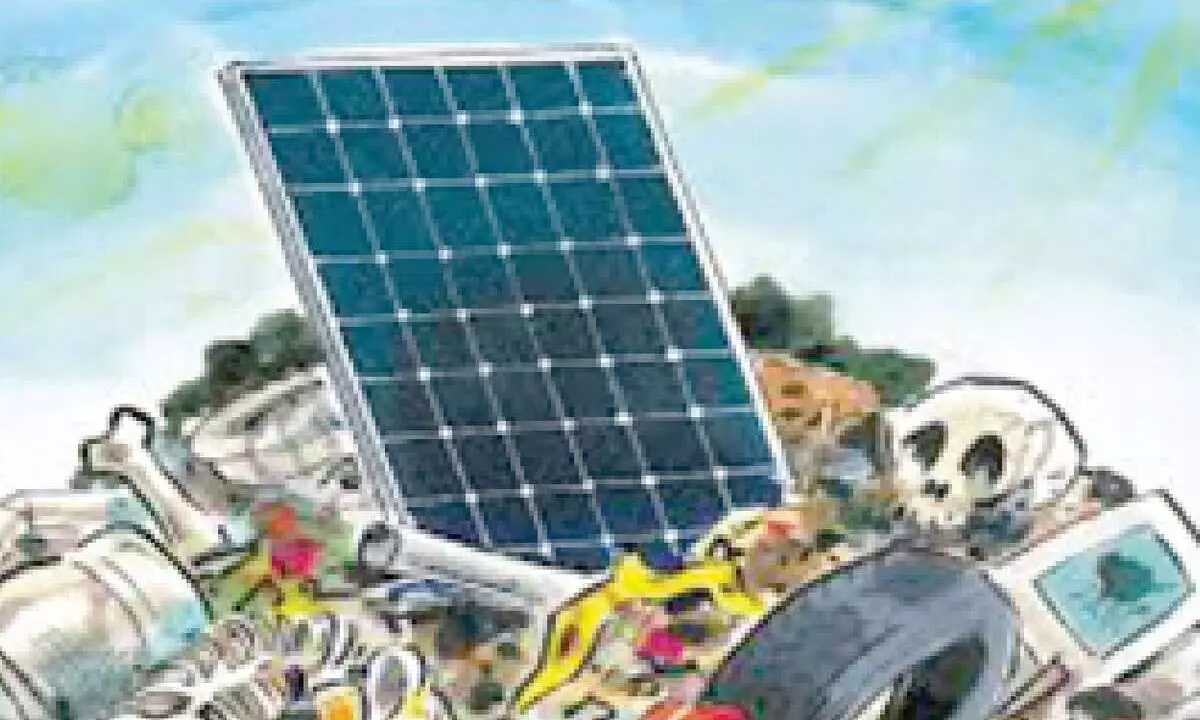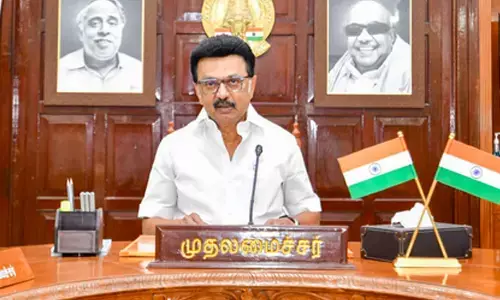Call for robust recycling of growing solar waste

As India expands its renewable capacity to go net-zero, cumulative waste from its existing and new solar energy capacity (deployed between FY24 and FY30) could reach up to 600 kilotonnes by 2030, equivalent to filling up 720 Olympic-size swimming pools, a new study by the Council on Energy, Environment and Water (CEEW) released said.
New Delhi: As India expands its renewable capacity to go net-zero, cumulative waste from its existing and new solar energy capacity (deployed between FY24 and FY30) could reach up to 600 kilotonnes by 2030, equivalent to filling up 720 Olympic-size swimming pools, a new study by the Council on Energy, Environment and Water (CEEW) released said.
Most of this waste will come from five states: Rajasthan, Gujarat, Karnataka, Andhra Pradesh, and Tamil Nadu. The waste from India’s current installed solar capacity alone will increase to 340 kilotonnes by 2030, containing about 10 kilotonnes of silicon, 12-18 tonnes of silver, and 16 tonnes of cadmium and tellurium, the majority of which are critical minerals for India.
The study found that the rest of the 260 kilotonnes of waste will come from new capacity that will be deployed in this decade. This is an opportunity for India to emerge as a leading hub of circular economy for the solar industry and ensure resilient solar supply chains.
India plans to amass around 292 GW of solar capacity by 2030, making solar PV waste management crucial for environmental, economic, and social reasons.
The CEEW study, ‘Enabling a Circular Economy in India’s Solar Industry: Assessing the Solar Waste Quantum’, for the first time, estimates India-specific solar waste generation from various streams, excluding manufacturing.
This information is crucial for creating data-driven waste management policies. India is already implementing several measures to tackle the waste. Last year, the Ministry of Environment, Forest and Climate Change (MoEFCC) issued E-waste Management Rules 2022 that shall govern the management of solar PV cells and modules waste in India. These rules mandate the producers of solar cells and modules to manage their waste under the extended producer responsibility (EPR) framework.
Arunabha Ghosh, CEO, CEEW, said: “India must proactively address solar waste, not just as an environmental imperative but as a strategic necessity for ensuring energy security and building a circular economy.
“As we witness the remarkable growth of solar from only 4 GW in March 2015 to 73 GW in December 2023, robust recycling mechanisms become increasingly crucial. They safeguard renewable ecosystems, create green jobs, enhance mineral security, foster innovation, and build resilient, circular supply chains.”
Neeraj Kuldeep, Senior Programme Lead, CEEW, said: “India's G20 Presidency had identified a circular economy as a thrust area for sustainable development. A circular solar industry and responsible waste management will maximise resource efficiency and make domestic supply chains resilient.
“The CEEW study provides robust evidence of the opportunity in solar waste management. However, solar recycling technologies and the industry are still at a nascent stage and require policy push and support.”
While the design life of the solar modules is currently 25 years, some witness an early end of life due to factors such as damage during transportation, module handling, and project operations.
The CEEW study recommends that the Indian solar industry prepare for these new responsibilities by arranging reverse logistics, storage, dismantling centres, and recycling
facilities. The industry should also explore innovative financing mechanisms and business models for solar waste management.










